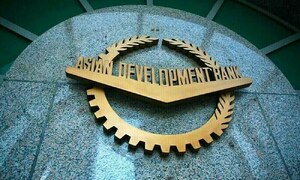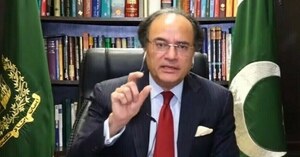EDITORIAL: Was the massive attack on military installations, both actual and symbolic, on May 9 a spontaneously carried out natural reaction to his arrest as claimed by PTI chief Imran Khan or a planned response? The National Security Committee on Tuesday looked into it incisively and upheld the latter part of the question and endorsed it word by word.
This was a follow-up of the Corps Commanders’ Conference a day earlier where the May 9 mayhem was condemned as “politically motivated and instigated incidents against military leadership and public/private properties”.
The military commanders deliberated upon various aspects of the incident that a political party’s leadership exploited for political gains and vowed to deal with it in the strongest possible terms.
“Based on the irrefutable evidence collected so far, armed forces are well aware of the planners, instigators, abettors and perpetrators of these attacks, and attempts to create distortions in this regard are absolutely futile,” said army’s media wing ISPR as it briefed newsmen following the Corps Commanders’ meeting.
The meeting also expressed resolve that those involved in this attack would be brought to justice through trials under relevant laws of the country, including the Pakistan Army Act and the Official Secrets Act. It also highlighted the need to rein in the social media, following which the NSC decided for full implementation of social media rules to overcome the “propaganda patronised by foreign elements through local facilitation” and decided to punish the “perpetrators”.
In compliance with the committee’s resolve, a large number of miscreants have been arrested. Given the quantum of carnage they have wreaked, the search for more is in process.
If public reaction to the May 9 mayhem, expressed as it has been on the street, is an evidence there are no two opinions that the generality stands with the army and has no questions about authenticity of its take on the May 9 episode.
But, as should be the case, there are a couple of questions that need to be answered. And of these, the first is Imran Khan’s claim that what happened on May 9 was a natural reaction of his voters.
But was it a normal political reaction? Unfortunately, little does he realised that under attack were not the government buildings and ministers’ residences alone; under attack were GHQ in Rawalpindi, Lahore Corps Commander’s official residence, air base at Mianwali, ISI’s office in Faisalabad and symbols of heroic defence by the martyrs.
Then there is a question as to why those charged with this crime, who happened to be civilians, should be treated under the Pakistan Army Act and the Official Secrets Act. To this the answer would be that as amended following the Peshawar public school tragedy the said law authorises military courts to try civilians, including groups, organisations or sects, as well for offences related to violence and terrorism.
The Official Secrets Act is for action against those who are or were employed in service of the State and are found to be helping the enemy against Pakistan.
And as expected the human rights groups too have objected to trial of suspects in military courts or courts of competent jurisdiction under the Army Act. The legal fraternity, too, is opposed to trial of civilians under the Army Act.
The argument for those opposed to trial of civilians in military courts is based on the fact that the existing criminal justice system of the country is fully competent to deal with such cases and to ensure that the trials proceed with speed and without unnecessary delays. Moreover, the Chief Justices of the High Courts can always be requested to constitute separate benches/courts to conduct such trials and ensuing appeals.
There should be no problem if those who committed crime against the military are tried and punished under the criminal justice system. The important element is the award of serious and rigorous punishment for such heinous crimes against the State.
Copyright Business Recorder, 2023






















Comments
Comments are closed.